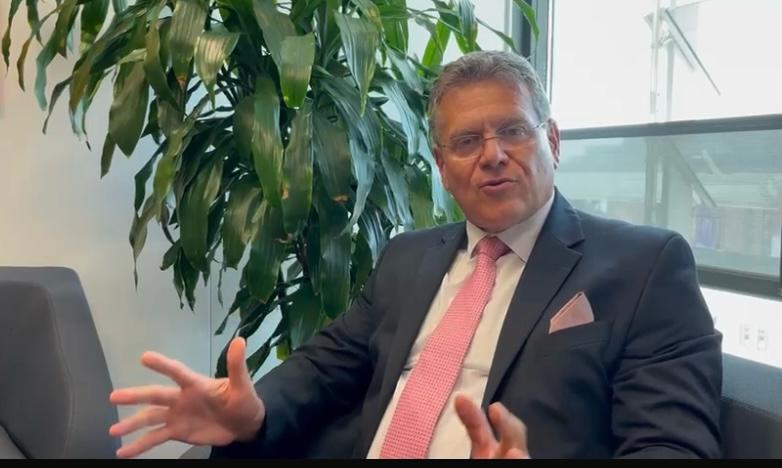Indonesia and the European Union today signed a free trade agreement in Bali after long negotiations, which were accelerated following the increase in American tariffs.
The agreement, which was signed by Indonesian Minister of Economy Erlangga Hartarto and European Trade Commissioner, Slovak Maroš Šefčovič, will facilitate transactions between the 27 countries of the European bloc and the largest economy in Southeast Asia.
“The EU and Indonesia are sending a strong message to the world that we are united in our commitment to open international trade based on rules and mutual benefit,” said Maroš Šefčovič.
The talks, which had been delayed due to the thorny issue of deforestation, were accelerated after U.S. President Donald Trump’s decision to impose increased tariffs on numerous countries.
As its products exported to the United States are now subject to a 19% tariff, Jakarta turned to the EU to achieve preferential access.
For their part, the 27, who are also in Trump’s crosshairs, seek to diversify their trading partners.
“This agreement (…) was finalized due to Donald Trump’s trade war. Indonesia needs to seek an alternative market in Europe and Europe (…) needs a market to penetrate,” commented Bima Yudhistira Antinegara, executive director of the Jakarta Center for Economic and Legal Studies, to the French news agency.
Under the agreement, 80% of Indonesian products exported to the EU will have zero tariffs, Erlangga stated.
This is expected to benefit key Indonesian products, mainly footwear, textiles, fishery products, and even palm oil, he added.
“Our agreement with Indonesia creates new opportunities for businesses and farmers” and “also ensures us a stable and predictable supply of essential raw materials,” said Ursula von der Leyen, President of the European Commission, in a statement.
The EU is Indonesia’s fifth-largest trading partner, with transactions worth $30.1 billion (€25.6 billion) in 2024.
With this agreement, “it will be easier for EU products to enter” Indonesia, a market of 280 million people, emphasizes Denny Friavanti, a researcher at the Center for Strategic and International Studies (CSIS). (23/9/25)
 go to the original language article
go to the original language article
